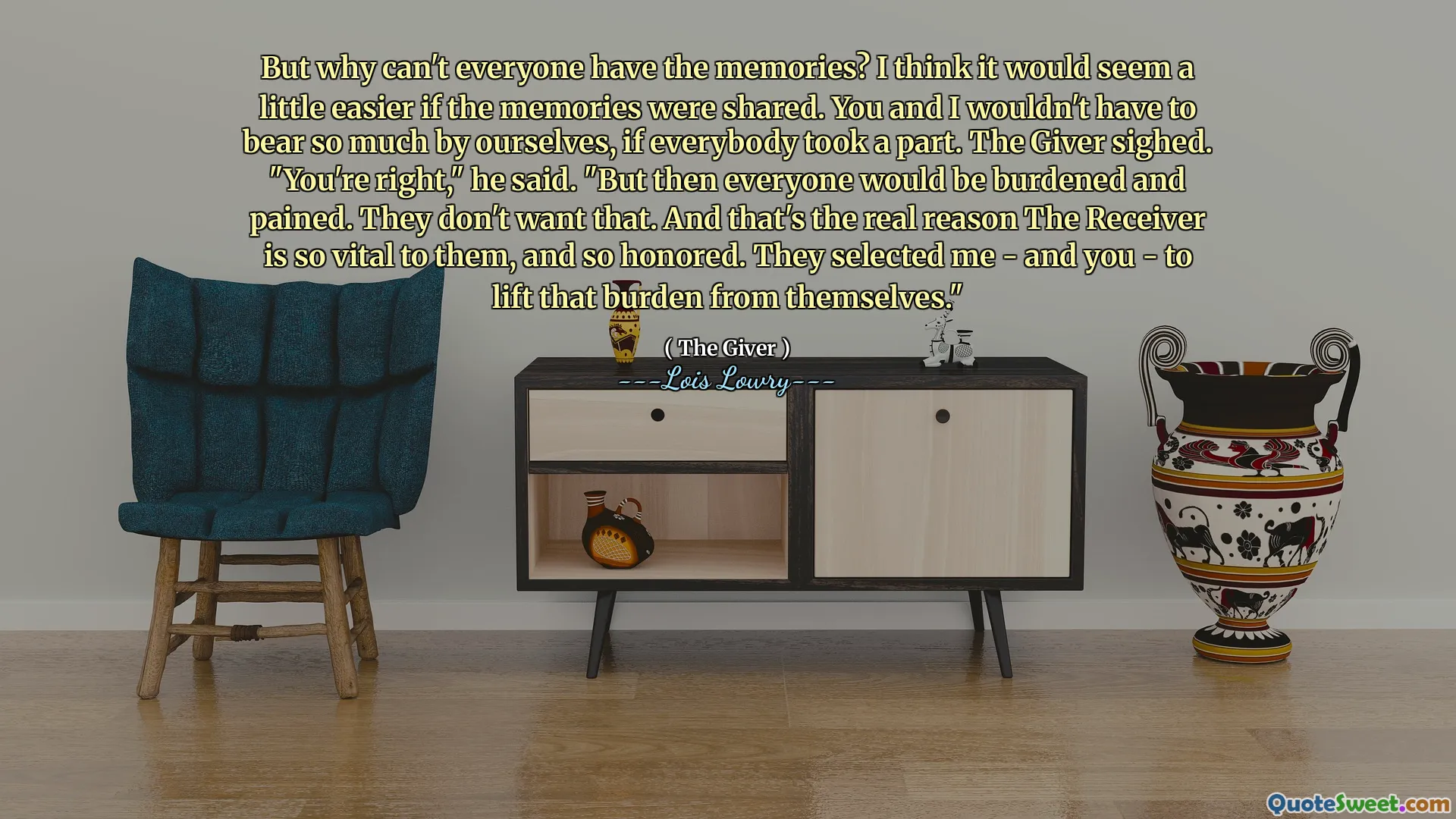
But why can't everyone have the memories? I think it would seem a little easier if the memories were shared. You and I wouldn't have to bear so much by ourselves, if everybody took a part. The Giver sighed. "You're right," he said. "But then everyone would be burdened and pained. They don't want that. And that's the real reason The Receiver is so vital to them, and so honored. They selected me - and you - to lift that burden from themselves."
This quote from Lois Lowry's 'The Giver' delves deeply into the complex nature of shared knowledge and emotional burden within society. The protagonist expresses a longing for collective memory sharing, envisioning a world where everyone can partake in the memories that one person carries, thereby easing the individual's load. This idea touches on the fundamental human desire for connection and understanding—wishing for empathy that surpasses individual experiences. However, the Giver's response highlights a profound truth about human nature and societal organization: the burden of pain and difficult memories is also what provides life with depth and authenticity. People often seek to shield themselves from uncomfortable truths because confronting pain can be overwhelming, yet it is through these struggles that growth, empathy, and genuine understanding emerge. The role of the Receiver, therefore, is vital; they bear the weight that others choose to avoid, preserving the community from the destructive aspects of knowledge while maintaining societal harmony. This raises poignant questions about the balance between individual suffering and societal cohesion—and whether avoiding pain truly leads to a better, more peaceful life or simply a superficial existence. The symbolism in this exchange prompts us to consider our own relationship with difficult memories or truths: are we better off embracing our pain to find meaning, or should some burdens be selectively alleviated to preserve comfort? Ultimately, the quote encapsulates the tension between transparency and protection, highlighting the sacrifices involved in creating a society that values happiness over authentic experience.








